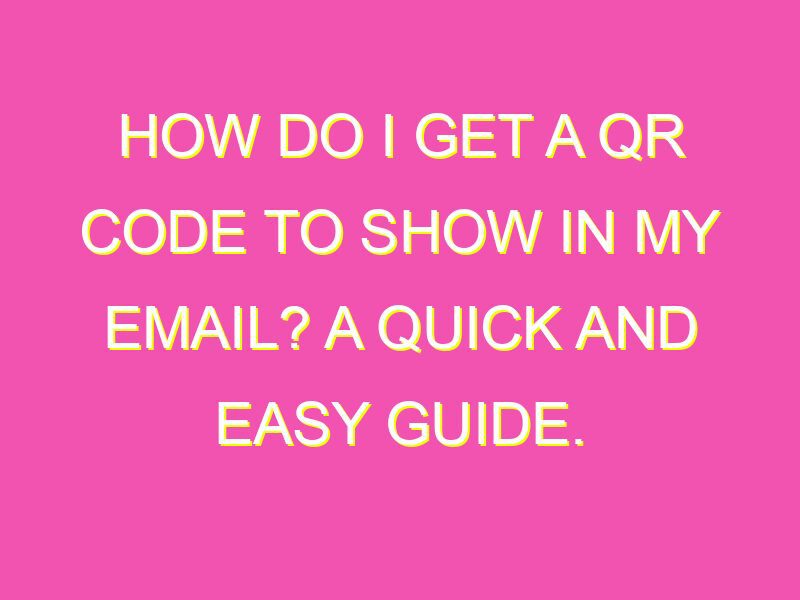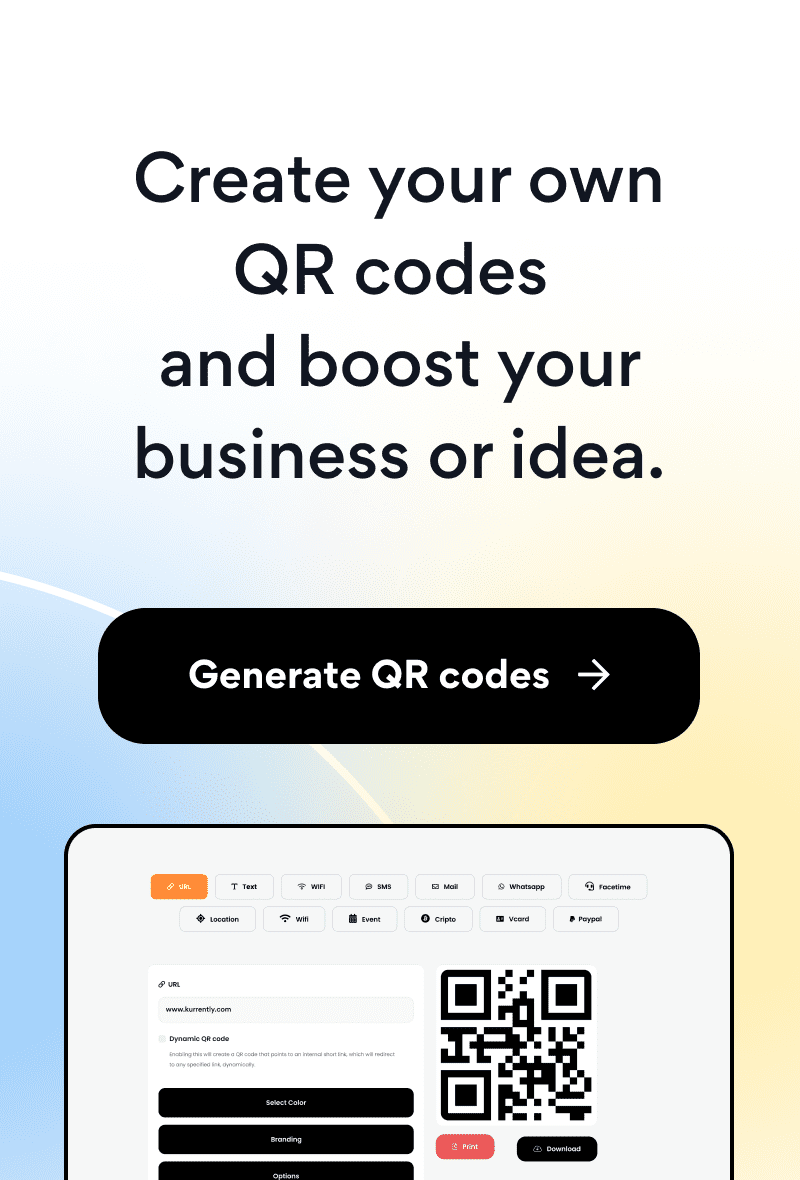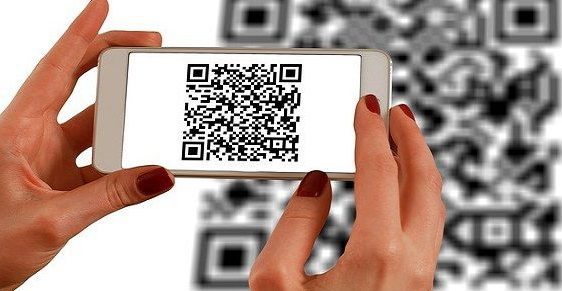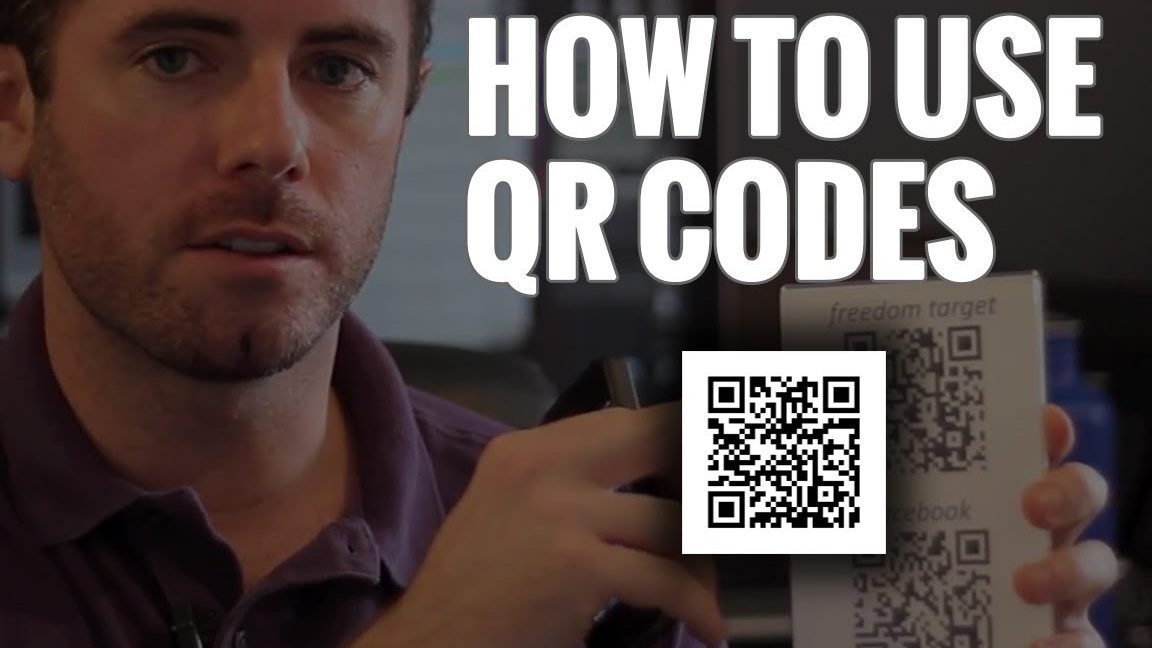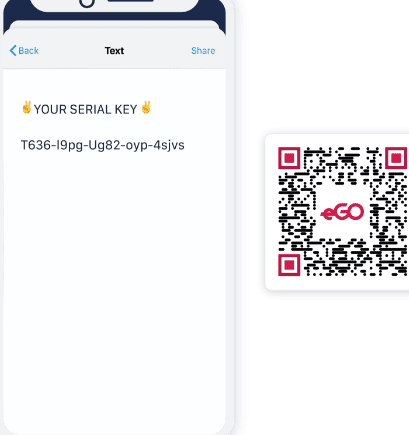In today’s fast-paced world, we are always on the lookout for ways to communicate more efficiently. Enter QR codes – a simple and effective way to share information. And did you know that you can even include QR codes in your emails? Yes, you read that right!
Now, you might be wondering how to create a QR code for your email. It’s actually quite easy with a QR code generator email. Here’s how you can do it:
You can even customize the design further with added options like resizing, resolution, and logos. With QR codes, your audience can easily access the information you want to share with just a scan. So next time, try utilizing a QR code generator email to enhance your email marketing strategy.
Introduction: QR Codes in Email Marketing
QR codes have become an increasingly popular tool in marketing campaigns. These codes can be scanned by smartphones and quickly direct users to a webpage, video, or other online content. Incorporating QR codes into email marketing can help boost engagement and provide an interactive and unique experience for users. In this article, we will explore how to add a QR code to your email and how QR code generator emails work.
Adding a QR Code to Your Email: Step-by-Step Guide
Adding a QR code to your email is a simple process that can be done in just a few steps. Here is a guide to help you get started:
- Open your email provider and create a new email.
- In the recipient field, enter the email address of the person you are sending the email to or the target’s email address.
- Enter the subject of your email.
- Create the email’s body and include any necessary information or content.
- Select the option to insert an image or picture.
- Choose the QR code image you created using a QR code generator.
- Insert the QR code image into your email.
- Send your email.
Using a QR Code Generator Email: How Does it Work?
There are several QR code generator email options available that do not require any additional software or knowledge of coding. These websites typically offer a user-friendly interface where you can create and customize your QR code. Once you have created your QR code, the website will provide you with an image file that you can download and use in your email.
Entering the Recipient and Subject of the Email
When adding a QR code to your email, it is important to follow standard email practices. Begin by entering the recipient’s email address or the target’s email address in the appropriate field. Next, enter a subject line that accurately describes the content of your email. This will help increase the likelihood that your email will be opened and read.
Creating the Email’s Body and Adding the QR Code
The body of your email should contain relevant information, such as details about a promotion or product launch. When adding a QR code, it is important to ensure the code is strategically placed within the email. Consider adding the code alongside a call to action or placing it near important information.
Final Step: Generating the Email Code
Once you have created and customized your QR code, the final step is to generate the email code. Depending on the QR code generator website you are using, this step may differ. In general, click on the “generate” button or download the image file to use in your email.
Advanced Options for Customizing Your QR Code
While generating a basic QR code may be sufficient for some marketing campaigns, some QR code generator websites offer advanced options for customization. This may include options to change the color or shape of your QR code or to add company branding. These advanced options can help your QR code stand out and align with your branding.
Conclusion: Best Practices for Using QR Codes in Emails
Adding a QR code to your email can be a powerful tool in your marketing campaign. To ensure the success of your campaign, it is important to follow best practices, such as:
- Strategically place your QR code within your email.
- Provide valuable content or a clear call to action alongside your QR code.
- Ensure the code is scannable and readable.
By following these best practices, you can help ensure the success of your marketing campaign and improve engagement with your audience.

